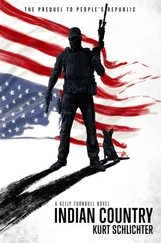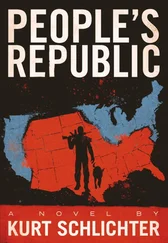Kurt Schlichter - Conservative Insurgency
Здесь есть возможность читать онлайн «Kurt Schlichter - Conservative Insurgency» весь текст электронной книги совершенно бесплатно (целиком полную версию без сокращений). В некоторых случаях можно слушать аудио, скачать через торрент в формате fb2 и присутствует краткое содержание. Год выпуска: 2014, ISBN: 2014, Издательство: Post Hill Press, Жанр: Социально-психологическая фантастика, humor_satire, на английском языке. Описание произведения, (предисловие) а так же отзывы посетителей доступны на портале библиотеки ЛибКат.
- Название:Conservative Insurgency
- Автор:
- Издательство:Post Hill Press
- Жанр:
- Год:2014
- ISBN:978-1-61868-977-1
- Рейтинг книги:5 / 5. Голосов: 1
-
Избранное:Добавить в избранное
- Отзывы:
-
Ваша оценка:
- 100
- 1
- 2
- 3
- 4
- 5
Conservative Insurgency: краткое содержание, описание и аннотация
Предлагаем к чтению аннотацию, описание, краткое содержание или предисловие (зависит от того, что написал сам автор книги «Conservative Insurgency»). Если вы не нашли необходимую информацию о книге — напишите в комментариях, мы постараемся отыскать её.
Conservative Insurgency
Conservative Insurgency — читать онлайн бесплатно полную книгу (весь текст) целиком
Ниже представлен текст книги, разбитый по страницам. Система сохранения места последней прочитанной страницы, позволяет с удобством читать онлайн бесплатно книгу «Conservative Insurgency», без необходимости каждый раз заново искать на чём Вы остановились. Поставьте закладку, и сможете в любой момент перейти на страницу, на которой закончили чтение.
Интервал:
Закладка:
Now, if there were no downside to concentration, we would concentrate forces all the time. But concentrating your forces in one place is risky. It gives the other side a target! That’s why insurgents, at least smart ones, don’t concentrate their forces until they absolutely have to, and then only at the last minute. They avoid a force-on-force fight. The traditional military has a huge advantage because it is designed to concentrate overwhelming force quickly and efficiently.
But this challenge for insurgents is also one of their greatest strengths. Insurgents are rarely concentrated, which is good, because traditional military forces are designed to smash concentrated enemy forces—they like it when an insurgent concentrates his forces because then they can mass their full combat power on the insurgents and inflict maximum damage.
Think of a traditional military as a sledgehammer and the insurgent as a mosquito. Yeah, if the sledgehammer hits the mosquito it’s “Adios, bug.” But what if there is a swarm of mosquitoes? Then, perhaps, the sledgehammer is a suboptimal weapon system for the job.
Now let’s apply that concept to a peaceful ideological struggle. Back in 2013, the liberal establishment was that traditional force. It was big, and its power was daunting. It occupied most of the government. It had heavy artillery in the form of the mainstream media. It was totally supported by the cultural left in Hollywood and academia. We constitutional conservatives simply did not have the firepower to take it on face-to-face back then. When we tried, we lost—look at the shutdown fight of October 2013. We lost because we provided a target and the entire liberal establishment, aided and abetted by the GOP moderates, were able to focus their fire on us.
So, the answer was not to concentrate our forces to give them a target they could crush with one blow. Instead, we needed to be millions of little mosquitoes, each taking a bit of blood out of the flabby liberal lummox swinging that sledgehammer.
Sandy Crawford (Conservative Activist)
The long-time conservative activist and organizer, now a senior fellow at the Breitbart Institute, still likes to fight. However, today she finds herself in the unusual (for her) position of defending the status quo. It’s clear, though, that her true calling is really being an insurgent, of fighting outnumbered and outgunned.
We had no real choice about how we were going to fight back. The Republican establishment seemed content to lose. The media was totally against us. Everywhere you looked in the culture—movies, TV, the arts—constitutional conservatives were the enemy. We were almost completely locked out of academia. They were attacking everywhere our values were strong and defied the liberal zeitgeist—religion, business, and the military. So doing it ourselves was the only way to go.
It wasn’t like we planned it. We just understood that we needed to use our individual skills and talents, and that we couldn’t write off any part of the culture anymore. We had technology too, which gave us the power to organize and exponentially increase our voice. But what we really had was an understanding that progressivism under these administrations represented a real threat, and that we couldn’t just ignore what was happening and hope it would be taken care of somehow, by someone else. We learned that we had to fight even as we were living our lives, and that our careers, our political action, and social interactions—well, we couldn’t pretend these were separate from our conservative beliefs. So everything we did supported the fight.
Ted Jindal (Technology Consultant)
Ted Jindal (no relation to the former vice president) was very familiar with the state of play for conservatives on the technology front during the Obama and Hillary years. As a young technology expert, he was there on the front lines while the insurgency struggled against the Democrats’ high-tech superiority.
I was a new media guy for the Romney 2012 campaign—naturally, I told them to pound sand when they tried to get me back in 2016. It was awful. The GOP knew nothing about technology or new media. They paid consultants huge bucks for these nearly useless systems that were essentially designed to send an e-mail to people saying, “Don’t forget to vote.” And they couldn’t even pull that off. They had no concept, and in 2016 it wasn’t much better.
Technology was just a buzzword and a scapegoat. It was like, “Uh, I think we need more technology and social media. Go buy some!” But, outside of the candidates and the party, conservatives were starting to figure things out. I soon figured out that I was seeing things precisely backwards.
By the teens, there were all of these new media tools using the Internet. You had your Twitter, your Facebook, blogs, video blogs, and podcasts. Constitutional conservatives were all over them. They would just start doing things on their own and either get an audience or not get an audience and move onto something else. It was totally organic. It was the free market we always talked about in action before our eyes. Naturally, we didn’t see that.
Of course, I came from the business side, very old school. As a new media guy—which I guess is old media today—I was totally wrong in my own outlook, and yet I was still light-years ahead of other folks working on this for our side. The thing that I needed to get into my head, and that took me a long time to get my head around, was that this wasn’t a phenomenon we could control and direct.
In the campaigns, we tried to coordinate things, to set the agenda ourselves by forcing our messages to the forefront. But even to the extent we could round up these free agents to try and coordinate them, they refused to be coordinated. Have you ever tried to get a mailing list of 200 key Twitter, Facebook, and blog influencers to follow your directions and talk about what you wanted talked about that day? Forget it. I would try to issue them talking points for the news cycle—I had this vision that I could somehow synchronize them into talking about what we on the campaigns had decided was important. Well, they just ignored us and did their own thing, or they told us to buzz off. And they didn’t use the word “buzz.”
We were tremendously frustrated that we couldn’t control the messaging. There were messages out there all right, often very powerful ones for our side, but we couldn’t control them.
What I initially missed was that this was a crowdsourcing phenomenon. Instead of trying to force my chosen messages to resonate, the messages that really resonated—the memes—would rise naturally from the confluence of the new media sources out there in the web. The good stuff, the powerful constitutional conservative messages that really worked for us, bubbled up and got big without some central controller picking and choosing them. In other words, the good stuff would take off and go viral on its own.
We started doing a lot better with our messaging when we stopped trying to tell constitutional conservatives what the message du jour was and started listening to them tell us what it was.
David Chang (Conservative Media Host)
In 2041, America’s number-one conservative satellite/web talk show host is David Chang. Chang, a gay conservative evangelical Christian who often spars with his conservative atheist cohost Timmy Tyler, is often called “the Rush Limbaugh of our generation.” He recalls how the elite liberal mindset was simply intolerable and how he fought back. Chang is a 2015 Harvard Law School graduate who first made a name for himself when he forced the school to readmit him after expelling him for “hate speech” for wondering aloud in class, “How can any gay American be part of the fraud that is progressivism? You know that it was the progressive’s brothers the Nazis who pinned pink triangles to us and put us in camps, right?”
Читать дальшеИнтервал:
Закладка:
Похожие книги на «Conservative Insurgency»
Представляем Вашему вниманию похожие книги на «Conservative Insurgency» списком для выбора. Мы отобрали схожую по названию и смыслу литературу в надежде предоставить читателям больше вариантов отыскать новые, интересные, ещё непрочитанные произведения.
Обсуждение, отзывы о книге «Conservative Insurgency» и просто собственные мнения читателей. Оставьте ваши комментарии, напишите, что Вы думаете о произведении, его смысле или главных героях. Укажите что конкретно понравилось, а что нет, и почему Вы так считаете.












